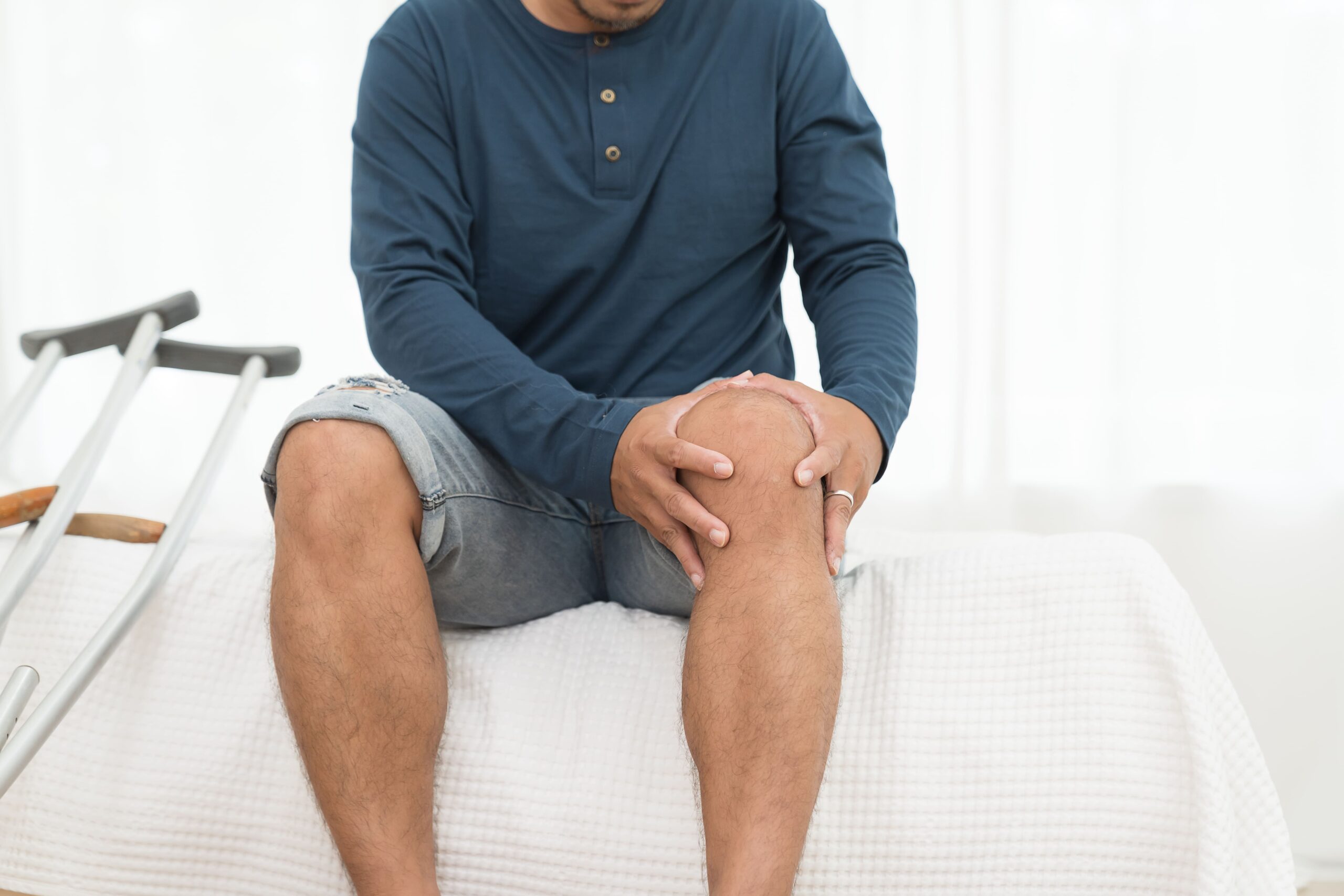After knee replacement surgery recovery times vary from individual to individual and require several weeks or months. It is crucial to follow the doctor’s and physiotherapist’s instructions and avoid stressful activities for the operated knee.
When a patient decides to undergo knee replacement surgery, they immediately ask their attending physician a question: what are the recovery times after knee surgery?
Postoperative recovery from knee replacement surgery can vary from individual to individual and depends on various factors, including age, overall health status, the severity of the pre-existing knee condition and the patient’s adherence to recovery guidelines.
However we can generally indicate some timelines to answer this commonly asked question among knee patients who need surgery. Continue reading and find out how long it takes to recover motor functions after knee surgery.
Index
- Knee prosthesis: recovery times after surgery
- Recovery times for knee prosthesis: what not to do
- Conclusions
- FAQ
Knee prosthesis: recovery times after surgery
The recovery period after knee replacement surgery can range from several weeks to several months and is divided into multiple phases that must be meticulously followed:
- the first few days are the most challenging. Pain is present, but well managed by the rapid recovery protocol, which involves multimodal therapy. From the day of surgery the patient becomes autonomous in walking again. After a few days the patient is discharged and begins rehabilitation at home. Crutches are recommended during these weeks;
- with time and progressive involvement in a structured rehabilitation program it is expected that the patient will gradually improve mobility, muscle strength and functionality of the operated knee.
How long does knee pain last after prosthesis?
In the immediate postoperative phase it is common for patients to experience knee pain. This is caused by inflammation and trauma associated with surgery. Fortunately this pain is expected to disappear after a short time. It is estimated that after only 5 days the patient no longer requires constant use of painkillers. After 6 months there is no longer any perceived discomfort. Therefore it is necessary to be patient and follow the surgeon’s and physiotherapist’s instructions carefully.
Recovery times for knee prosthesis: what not to do
The indications provided so far imply that the patient takes care of their health. This means avoiding activities that could compromise the surgery’s outcome.
Some common recommendations include avoiding:
- activities that put too much stress on the operated knee such as jumping, deep squats or running during the first weeks or months after surgery;
- sudden movements or twists of the operated knee, which could jeopardize the stability and integrity of the prosthesis in the early weeks;
- lifting excessive weights;
- intense physical exertion that could overload the operated knee.
It is also advisable to discontinue the use of crutches with the doctor’s or physiotherapist’s authorization.
Conclusions
The main concern of any patient undergoing knee replacement surgery is the pain they will experience after the operation. Patients are also interested in knowing how long it will take before they can resume activities they enjoy.
It is important to understand that a certain amount of pain is normal, but pain management therapies have improved significantly. The rapid recovery approach involves pharmacological therapy designed to completely control pain.
However it is essential to be aware of signs that could indicate a complication or significant problem. If knee pain becomes excessive, increases in intensity or if wound discharge or fever occurs, it is advisable to contact your doctor immediately.
Do you suffer from knee arthritis or have you had an accident? Contact me now: I am an orthopedic expert in Florence, my name is Vanni Strigelli. Find out how I can help you regain the quality of your life.
FAQ
What are the main reasons for undergoing knee replacement surgery?
Knee replacement surgery is usually recommended for patients suffering from severe joint problems. For example those who suffer from advanced arthritis or who have suffered serious joint injuries (bone necrosis) or have rheumatic diseases that over time have damaged the cartilage with rheumatoid arthritis. These factors cause persistent pain, limited mobility and impaired quality of life. Knee replacement is the only chance to walk without pain, restore functionality and improve quality of life.
How much pain can be experienced after knee replacement surgery?
After knee replacement surgery it is common to experience pain in the operated area. Pain is usually managed with analgesic medications prescribed by the doctor, which may include pain relievers and anti-inflammatory drugs.
The duration and intensity of pain may vary from patient to patient and depend on several factors. For example the severity of the surgery, the individual response to pain and personal healing processes. Therefore pain therapy will be adjusted as needed to effectively control the discomfort.
How long does it take to recover functionality after knee replacement surgery?
The complete recovery time after knee replacement surgery can vary from several weeks to several months. However it is possible to move independently right from the start. During this period the patient may experience a gradual improvement in mobility, muscle strength and functionality of the operated knee. Active participation in a structured rehabilitation program, which includes muscle strengthening exercises, physical therapies and adequate rest, can contribute to a faster and optimal recovery.
How can I speed up recovery times after knee replacement surgery?
There are several actions that can be taken to promote faster and complete recovery after knee replacement surgery. These may include:
- carefully following the rehabilitation plan prescribed by the orthopedic surgeon and the rehabilitation team;
- not wetting the wound or tampering with dressings;
- taking prescribed medications regularly and according to the doctor’s instructions;
- avoiding activities that put excessive stress on the operated knee such as lifting weights or making sudden movements;
- participating in physical therapy sessions and performing muscle strengthening and stretching exercises.


